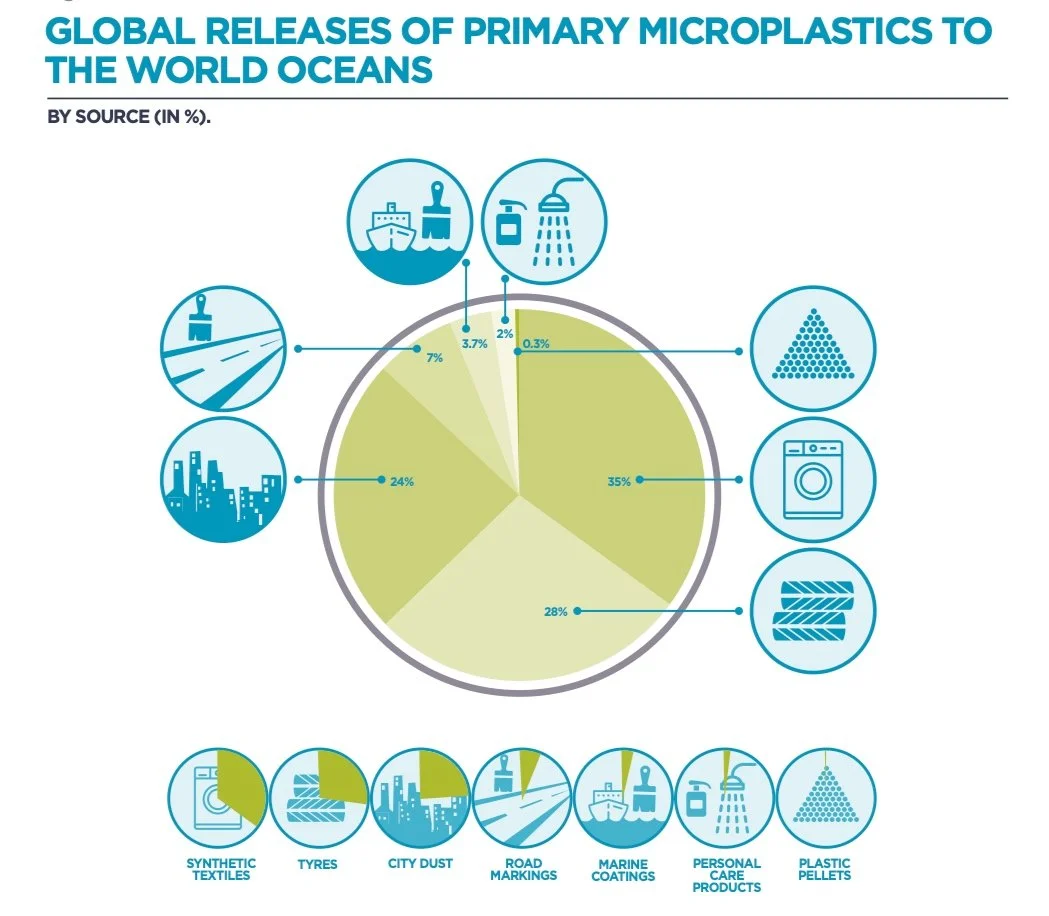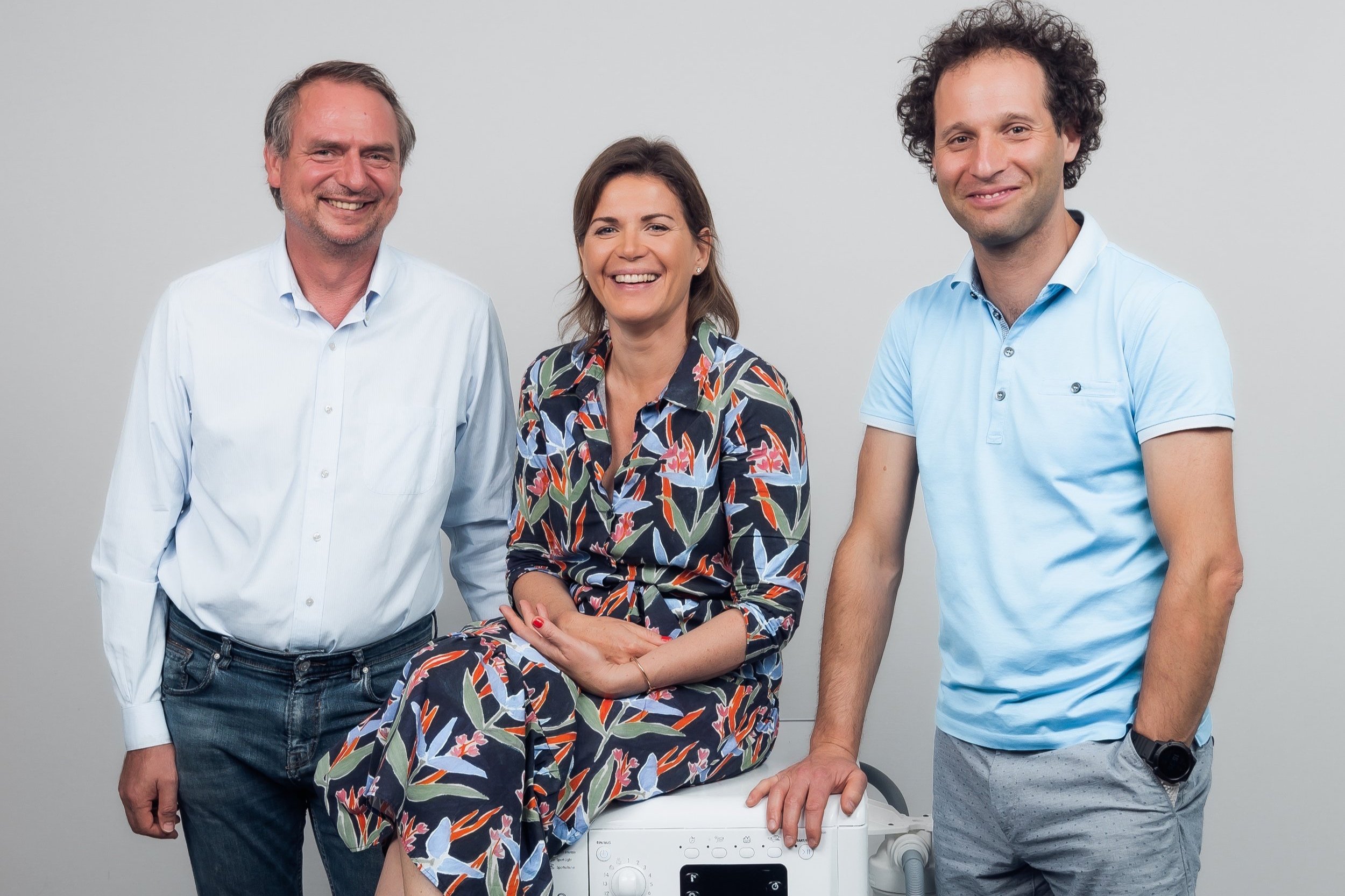Microfibres and Ocean Microplastics: Mojca Zupan from PlanetCare
Around 700,000 microfibres could be released into waterways every machine wash, one study says. And worse still, according to the UNEP up to 60% of material made into clothing these days is synthetic (read: plastic!).
This means that we’re adding to ocean microplastics and microfibre pollution every time we do our laundry. Luckily, one ocean impact startup is paving the way in solving the huge problem of these tiny fibres.
For the third episode of our Pitchfest 2022 Series on the Ocean Impact Podcast, we chatted to PlanetCare’s Founder and CEO Mojca Zupan about their solution to stop microfibre pollution at the source, and how they’re helping to drive regulatory change.
Microplastics have been found in the Mariana Trench, in our food, and even in our blood! But PlanetCare is on a mission to stop microfibres from your laundry finding their way into places they shouldn’t be. And they want other ocean impact entrepreneurs to follow suit.
Four years ago, Mojca Zupan - a lawyer - came up with a solution to the issue of microfibre pollution from laundry. She thought she could patent this and take it to washing machine producers (OEMs) to licence and install into their washing machines. But there was one problem:
They didn’t care.
She recounts a meeting with the board of a large European producer that left her particularly frustrated:
“a member of the board told me that my love for the ocean would be better served if I just adopted a dolphin or something like that”
They didn’t think there was a market for it. And they thought it was impossible to filter the dirty, detergent-ridden water in the first place.
So she went around them, and PlanetCare was born. Setting out to prove that it could be done, that there was demand for a filter to stop microfibre pollution, and that washing machine producers should care about the problem.
But she had to let people know it was a problem in the first place.
What ARE MICROPLASTICS and MICROFIBRES?
Microfibres
Microfibres are produced every time we wash our clothes. Abrasion from washing machines cause microscopic spaghetti-like strings of textile fibres, around 5mm-7.8mm in length, to shed and be released into wastewater.
Because around 60% of our clothes are made from plastic-derived synthetic materials - including polyester, polyester-cotton blend, acrylic, spandex, and nylon textiles - a large portion of this microfibre pollution is actually a form of mircoplastic.
One study estimated that an average 6kg machine wash of acrylic fabric could release over 700,000 microfibres! PlanetCare likens it to putting plastic bag into the ocean every week, just by doing laundry.
Microplastics
The NOAA defines microplastics as tiny pieces of plastic less than 5mm long.
Two-thirds of ocean microplastics are from the erosion of synthetic textiles and tyres, according to this 2017 IUCN report.
The erosion of tyres while driving accounts for around 28.3% of ocean microplastics. While the laundry of synthetic textiles accounts for a whopping 34.8% - or just over one-third of ocean microplastics.
Graphic: Boucher, J. and Friot D. (2017). Primary Microplastics in the Oceans: A Global Evaluation of Sources. Gland, Switzerland: IUCN. 43pp.
How is the microfibre problem currently addressed?
Wastewater Treatment Plants (WWTPs) can be effective at capturing microfibres depending on the technology used: a fortunate ‘side effect’ since they weren’t actually designed for this purpose.
Sound like a solution? Not quite.
Firstly, not all countries have WWTPs. Secondly, they were developed to sanitise wastewater coming from our homes. In the process, a large quantity of so called sewage sludge (or biosolids) is recovered. This sludge can hold nitrogen, phosphorus, and other nutrients. But it can also hold heavy metals, forever chemicals, pathogens, and those captured microfibres.
In many developed countries, sewage sludge - and thus microplastics - are applied to land for agricultural use or composted for eventual land application. That’s right, it’s spread on the fields of produce that humans eat.
In fact, according to a study by researchers at Cardiff University, between 31,000 and 42,000 tonnes of microplastics contaminate European farmland each year as a result of recycled sludge. And in addition to leaching toxic chemicals into the soil, those microplastics can still end up in waterways and the ocean.
So, although WWTPs can remove microfibres from wastewater, the use of sewage sludge on land means they don’t actually stop microfibre pollution.
PlanetCare’s microfibre filter installed on a washing machine
Enter: Planetcare
Installing a microfibre filter is one of the simplest ways to help stop ocean microplastics from your laundry.
PlanetCare’s filter has been independently tested to stop 90% of microfibres during every wash, according to their website.
The filter attaches to domestic washing machines, capturing microplastics before they enter your drain, and can be easily installed in around 10 minutes.
Plus, the service is closed-loop! PlanetCare collects used cartridges free of charge and refurbishes them. According to them:
95% of the cartridge (the shell) is washed, fitted with a new filtering medium, and sent back to customers.
5% (the filtering medium with the caught fibers) is collected for recycling.
But they aren’t stopping there.
PlanetCare Founders: Dr. Andrej Kržan, Mojca Zupan, and Dr. Miha Vrhovec
Now and Into the future
PlanetCare was built to help move the industry along, and to affect regulatory change on the issue of microfibre pollution and ocean microplastics from washing machines. And their ambitions have remained steadfast.
Commericial Solutions to stop microfibres
Their commercial microfibre filter is the perfect solution for the service industry using larger washing machines: such as launderettes, small hotels, sports facilities, etc. PlanetCare’s high-capacity commercial filter is a tailored solution where they work closely with the customer to ensure it integrates seamlessly into their existing set-up.
Making microfibre filters mandatory by law
The PlanetCare journey started with trying to get filters installed as standard on new washing machines by manufacturers. The retrofitting device proved there was a market for it. When France was passing their groundbreaking anti-waste law, PlanetCare was able to provide proof thanks having been adopted by thousands of users across the globe. Now, all new washing machines in France will be equipped with a microfibre filter from 2025 onward. And other nations are following suit, PlanetCare is actively involved in conversations with other governments, and even washing machine manufacturers, or OEM’s (Original Equipment Manufacturers).
Despite all of this progress on microfibre pollution and ocean microplastics from laundry, Mojca wants other ocean impact entrepreneurs to follow suit.
PlanetCare’s filter is just one solution, but we need more says it’s Founder, Mojca Zupan.
Advice for ocean impact entrepreneurs
PlanetCare Founder and CEO Mojca Zupan
Mojca had some fantastic advice and words of encouragement for other ocean impact innovators, especially those working on this particular challenge.
WE NEED YOUR INNOVATION too
“There’s room for a lot of solutions, not just ours…it’s been an incredibly lonely place opening the market and bringing this problem on the radar. With more competitors emerging, with more people speaking about it, it’s actually better for us. It’s better for the whole planet. So I would really encourage people to come up with solutions. Because we might work for someone, but we might not work for someone [else]. We don’t just drive one type of car, why would we have one type of filter? [PlanetCare] was basically the only solution on the market then. But I welcome all to fight with us.”
Don’t give up - you got this
“I would say just don’t give up. If this is something you’re passionate about, if this is something you want to do…it’s not gonna go smoothly, it really never does. Although we see these stories of success…there’s been a lot of perseverance and a lot of rocks on the road… I think maybe people are not equipped for that, because we romanticise these startup careers. Be prepared to invest a lot of energy, and learn. It’s not all roses and sunshine, it’s gonna be tough and that’s normal, that’s okay. Because you’re going to learn from the times that are tough, and you’re going to be better.”
Your team is everything
“It’s so important to have a great team. We really invest a lot in our team. We have this friendly, almost family atmosphere that I think really helps. Because at the end of the day, it’s the team that delivers. It’s the team that makes a change. It’s never one single person. So you need a strong team that has the same values and, it may sound cheesy, but really bound together by purpose. And I think founders should extend the feeling of ownership - of the solution, and the results, and the positive impact - to the whole team… It’s important that the team feels they’re all contributing…that it’s not my story, it’s our story.”
We love this! Beautiful words of wisdom from a remarkable founder.
What can ocean lovers do?
If the issue of washing machine microfibre pollution and ocean microplastics annoys the pants off you - reach out to your representatives and ask them: “What are you doing to prevent microfibre pollution from washing machines? Are you looking to bring in legislation to ensure filtration systems on new machines?”
When people come together to support innovation, we have the power to affect changes that help Planet Ocean.
Listen and Watch
New episodes of the Pitchfest 2022 Series will be releasing each week. Follow the Ocean Impact Podcast wherever you get your podcasts, or subscribe and watch on Youtube.
Links
→ Follow PlanetCare on Instagram
→ Follow PlanetCare on LinkedIn
→ Plastic Soup Foundation (mentioned in interview)












